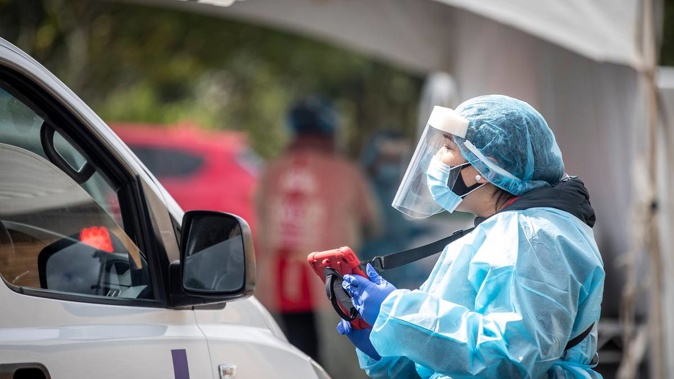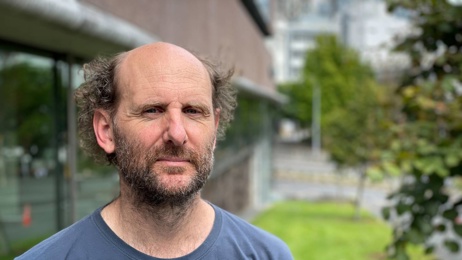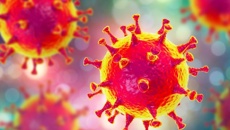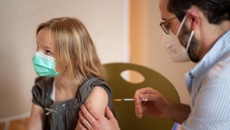
Seven people have died with Covid-19, the Ministry of Health says, signalling a grim milestone as the country's death toll since the beginning of the pandemic passes 100.
The latest deaths bring New Zealand's Covid-19 death toll to 105
There is a slight drop off in cases today with a new 18,699 confirmed with Covid - but 853 people are in hospital with the virus. Seven are in ICU or high dependency unit care.
"This is another reminder that the Omicron variant can still cause serious illness and/or death either directly or by its impact on other health conditions," the ministry said in a statement.
"Getting vaccinated and boosted will help to keep you out of hospital if you catch COVID-19 and could save your life.
"At this sad time, our thoughts are with the whanau and friends of all those who have died."
The majority of the deaths were in the North Island, the ministry confirmed.
" Of these deaths, three occurred in the Auckland region, and one each in Bay of Plenty, MidCentral, Wellington and Canterbury.
"The total number of publicly reported Covid-19 related deaths to date is now 105.
"Of the people who have died that we are announcing today, one person was in their fifties, two were in their 70s, two were in their 80s, and two were in their 90s. Four were male and three were female.
"Out of respect for affected families, we will be making no further comment."
The locations of the cases in hospital are: Northland: 19; North Shore: 172; Middlemore: 199; Auckland: 208; Waikato: 69; Bay of Plenty: 28; Lakes: 12; Tairāwhiti: 3, Hawke's Bay: 23; Taranaki: 10; MidCentral: 18; Whanganui: 2; Hutt Valley: 19; Capital and Coast: 33; Wairarapa: 5; Nelson Marlborough: 3; Canterbury: 22; and Southern: 8.
The average age of those needing hospital care is 59.
More than 6000 of the new cases are in Auckland.
The location of all new community cases are: Northland (670), Auckland (6,077), Waikato (1,700), Bay of Plenty (1,247), Lakes (496), Hawke's Bay (730), MidCentral (667), Whanganui (162), Taranaki (462), Tairāwhiti (377), Wairarapa (169), Capital and Coast (1,545), Hutt Valley (937), Nelson Marlborough (424), Canterbury (2,028), South Canterbury (118), Southern (848), West Coast (32); while a further 10 have been listed as "unknown".
In contrast, there were just 16 cases of Covid-19 picked up at the border.
The total number of active community cases (now deemed as being identified in the past 10 days but not yet classified as recovered) is 206,288,
Confirmed total cases (including those who have recovered) is now 346,621.
As of 11.59pm last night, the isolation period for cases and household contacts was now reduced from 10 to seven days.
The Ministry of Health again stated that this change applies to anyone who is isolating at the time of the change.
"If you test positive for Covid-19, you are required to isolate for seven days," the ministry said. "You do not need to be retested after your initial positive result. "If you still have symptoms after seven days, stay home until you feel better and then wait another 24 hours.
"If you are a household contact and you have done a Rapid Antigen Test (RAT) on both days 3 and 7 of the isolation period of the first COVID-19 positive person in your house, and both tests are negative, you can leave isolation on day 8 if you are well.
"If you are a household contact and return a positive RAT result while isolating, you will need to isolate for a further 7 days and wait till 24 hours after you are symptom free. Other household members do not have to reset their isolation and can leave isolation on day 8, the same day as the first case can leave isolation, provided they have returned negative RAT results and are not symptomatic."
The ministry said that if you have tested negative, but still feel sick or symptomatic, they "strongly" advised people to follow public health guidance and "stay home and away from public places, work and other social gatherings to keep others and yourself safe".
A strain on the health system is beginning to show, according to doctors around the country.
Northern Region Health Coordination Centre (NRHCC) chief clinical officer Dr Andrew Old said half of those in ICU were in Auckland as staff across the city's hospitals were picking up jobs outside their normal roles to help manage demand.
Old said the numbers in Auckland gave rise to "cautious optimism" around having reached a peak, but we were "not out of the woods yet". While we are down from the peak of last week, it's believed some of that peak was because of the switch to RATs.
At Waitematā DHB, the entire legal team had been redeployed to support security guards and the chief financial officer had been working the wards, delivering patient meals.
Anaesthetists at Auckland Hospital were working as phlebotomists and taking blood, while members of the executive leadership team were working in the emergency department, making beds, answering calls and clearing linen skips.
At Counties Manukau DHB, public health nurses were helping in hospital roles, allied health clinicians were assisting orderly teams, and registered nurses, healthcare assistants and on-call staff had picked up shifts outside their normal hours to fill roster gaps.
"The situation in our hospital, with pressure from patients with Covid combined with high staff absences due to Covid, is unprecedented, certainly in my career," Old said.
"It's thanks to the awesome dedication and flexibility of our staff that we are continuing to provide safe, urgent care for everyone who needs it."
Regional chair of the Australia and New Zealand Intensive Care Society Dr Craig Carr said the demand on intensive care was a real challenge, but teams were holding up reasonably well.
Prior to Covid, 12 to 15 per cent of elective surgery in New Zealand that required intensive care was postponed because of a lack of ICU capacity, and Covid-19 was causing that postponement rate to rise.
"Our big fear as a community is that will involve postponement of essential cancer surgery, essential cardiac surgery. That's certainly the experience we're seeing from colleagues overseas," Carr said.
Carr understands of the around 170 resourced ICU beds in New Zealand, about 150 or 89 per cent were occupied. Yesterday, there were 20 people in ICU units.
Take your Radio, Podcasts and Music with you







